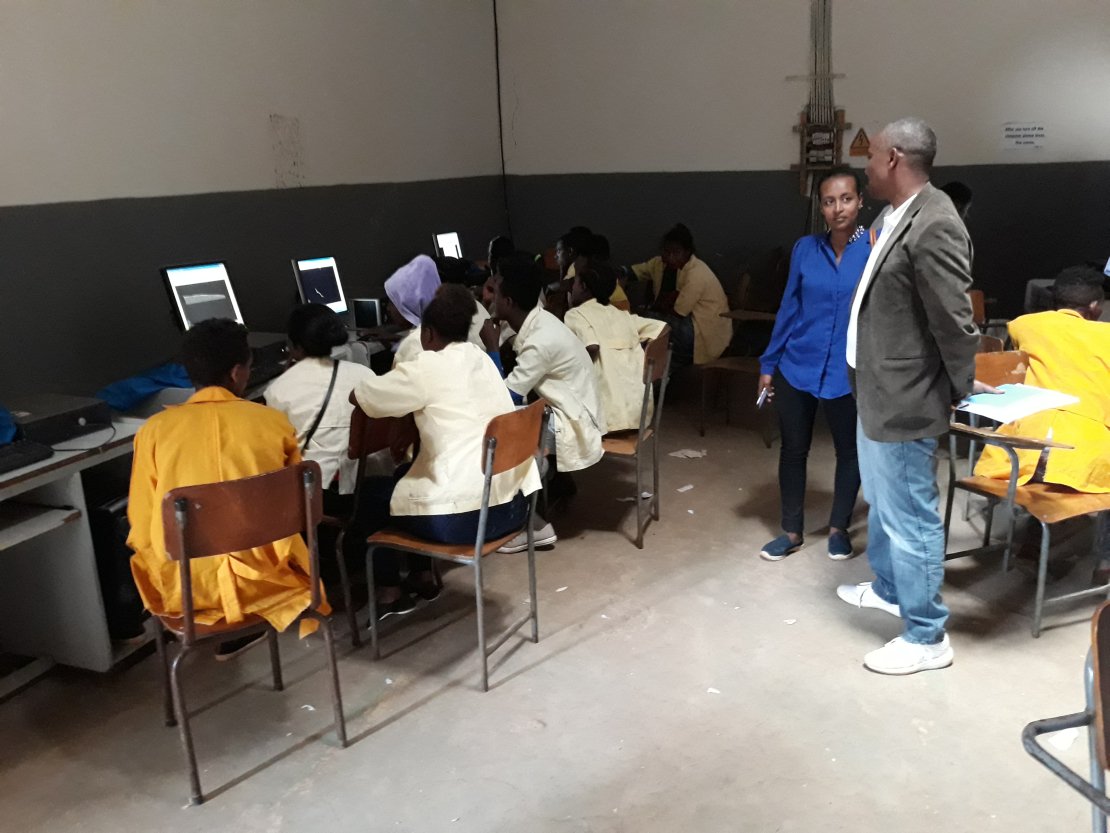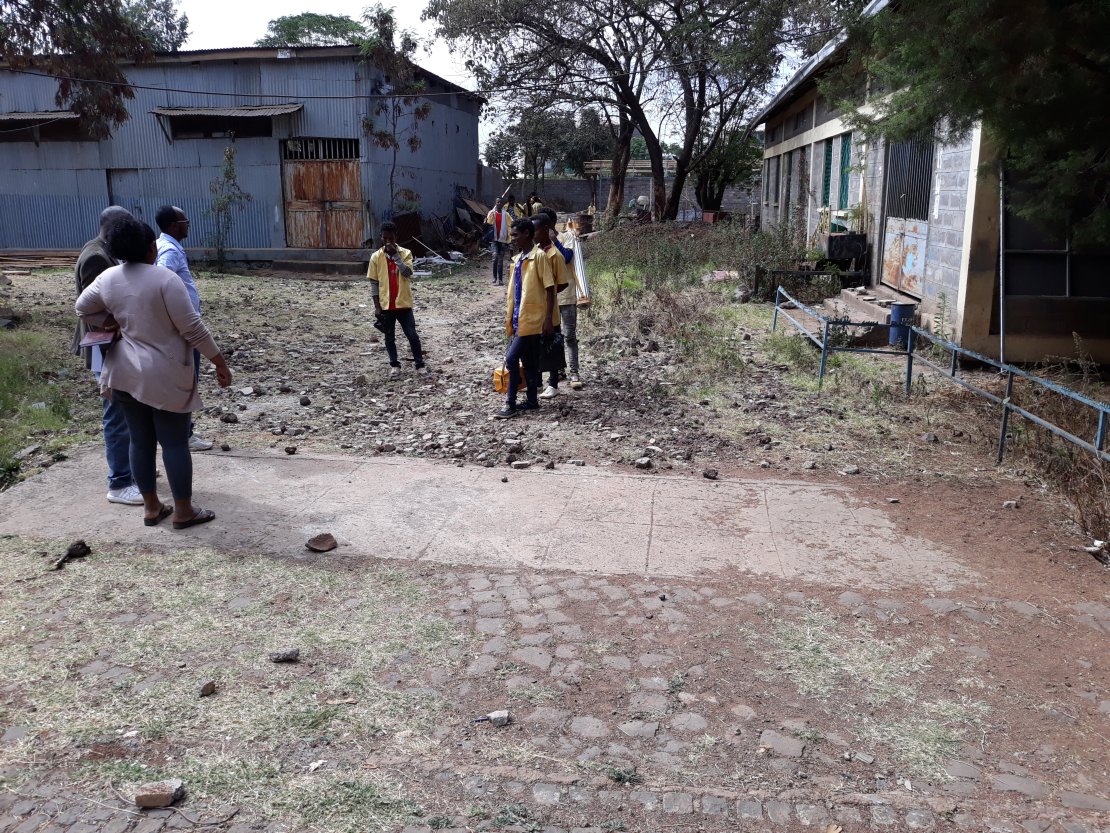An important component of the project is to support the Technical and Vocational Education and Training (TVET) institutes. During the inception phase of the project each partner university has selected a TVET. From Addis Ababa the Entoto Polytechnic College, from Bahir Dar the Bahir Dar Polytechnic College and from Mekelle the Meichew Agricultural TVET College have been selected and are participating within the EENSAT project. Representatives of these TVETs have been participating at the project kick-off workshop in October 2017.

Figure 1: TVET students practicing software tools used for road construction engineering
A cascading approach to enhance the capacity of selected department or grades of the TVET is going to be applied. This implies that firstly through curriculum revision and additional domain specific support the existing staff capacity at academic level is improved. Secondly, the academic staff transforms selected material into syllabi to be used at TVET level(s) to upgrade the trainer and instructor capacity at the TVETs. Training and instruction can be done using the newly deployed computer infrastructure and classrooms, but also by means of distance education.
During the February mission site visits have been conducted and discussions took place on how support could be provided, taking into consideration adherence to the Ethiopian Occupational Standards and the Model Curriculum currently in place and the degrees of freedom to intervene in the existing curriculum. Further information in this respect still has to be obtained from the TVET Curriculum Commission.
From ongoing discussions and the site visits it became clear that selected TVETs can be supported within a number of programs or grades, like Surveying, Construction Engineering, Drafting, Natural Resources Management, Programming and (spatial) Information Technology. An inventory was prepared for these programs on the number of TVET staff involved and their current qualifications as well as the new skills and knowledge which would be required by the TVET trainers and instructors. From each TVET about 5 to 10 staff per program would benefit from additional training activities. Also attention was given to the number of students enrolled for short and longer duration courses and programs as well as current status of equipment available and eventually required.
For the Agricultural related programs at the TVETs there is no dedicated course on Remote Sensing or Geographical Information Systems. These topics are now included as chapters within the overall program. Further enhancement of these topics within the program would be required.
Such a course could then also be provided to Agricultural Development Agents as part of the Community Services provided by each of the partner universities as one of the outreach activities envisaged.

Figure 2: TVET students doing their survey at the Bahir Dar Polytechnic College compound





